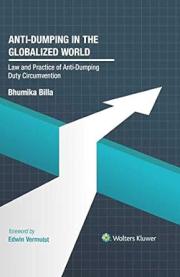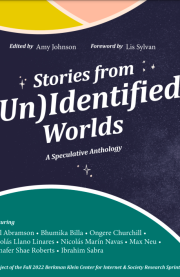Education CV
I am a PhD student at the Faculty of Law, Cambridge Trust scholar, Research Associate at the Centre for Business Research, and a performance artist. I read, write, teach, and perform on the themes of law, technology, and identity (more specifically, gender). My PhD explores the nature of the legal system as a communication system, towards a new Information Theory of Law. In modelling the coding processes by which law and society interact, I am investigating exclusivity, reflexivity, and adaptability of legal systems. Through this project, I hope to start bridging the agent-centric critiques with systemic critiques of law and further ask questions about the co-constitutive role of space, time, and bodies in reinforcing structural power. I am keen to explore and develop critical, creative, and collaborative methods that seek to challenge the hierarchies of knowledge production as I study them. For more details, see my research profile as spotlighted by the University here: https://www.cam.ac.uk/stories/the-language-of-justice.
I am also moonlighting as a spoken word poet, Kathak dancer, filmmaker, and creative facilitator. My creative works on page, on stage, and on film center issues of social justice and have been commissioned/awarded by Amnesty International, Harvard University, Button Poetry, BBC Words First, and Out-Spoken Press among others. For creative commissions/projects, please write to bhumika.billa@gmail.com.
Education:
- PhD in Law, Peterhouse, University of Cambridge (2021-present)
- LLM, St Edmund's College, University of Cambridge (2019-20)
- BA LLB, Vivekananda School of Law and Legal Studies, GGSIP University (2013-18)
Prizes & Awards:
- Gavin C. Reid Prize for the Best Paper by an Early Career Researcher for 'Law as Code: Exploring Information, Communication and Power in Legal Systems' (2024)
- Kenneth Law Essay Prize, for first-year paper titled ‘Towards an Information Theory of Law’, Peterhouse, University of Cambridge (2022)
- Cambridge University Law Society Gold award for legal pro bono work over an academic year (2022)
- St Edmund’s College Prize, for achieving first class in LL.M. examinations, St Edmund's College, University of Cambridge (2020)
- University Gold Medal, GGSIP University for overall first rank in B.A. LL.B. across 8 colleges (2018)
Scholarships & Grants:
- Cambridge Creative Encounters, Partnership with Cambridge School of Visual and Performing Arts, University of Cambridge (2023)
- Jawaharlal Nehru Memorial Trust Cambridge International Scholarship, full-scholarship towards PhD, University of Cambridge (2021-present)
- Cambridge Trust Scholarship, partial scholarship towards LL.M., University of Cambridge (2019)
- Cornelia Sorabji Law Scholarship, partial scholarship towards BCL, University of Oxford (offered) (2019)
Experience:
- Associate Fellow, ESRC Centre for Digital Futures at Work, Universities of Sussex and Leeds, (2021-present)
- Research Associate, Centre for Business Research, Judge Business School, University of Cambridge (2020-present)
- Researcher, Berkman Klein Center for Internet and Society, Harvard University (Fall 2022)
- Project Manager, Cambridge Law Faculty Pro Bono Project, University of Cambridge (2021-22)
- General Editor, Cambridge International Law Journal (2019-20)
- Legal Research Fellow, Centre for WTO Studies, Indian Institute of Foreign Trade, Delhi (2018-2019)
Teaching:
- 'Legal Evolution and Game Theory', Undergraduate supervisions for Law and Political Economy course, Department of Land Economy, University of Cambridge (2024-25)
- 'Feminist Legal Methodologies', LL.M. Lecture for the Race, Law and Gender course, Faculty of Law, University of Cambridge (2023-24)
- ‘Law, Technology, Society', LL.M. Workshops for the Economics of Law and Regulation course, Faculty of Law, University of Cambridge (2020-23)
- ‘Inequality and Law’, LL.M. Workshops for the Economics of Law and Regulation course, Faculty of Law, University of Cambridge (2020-22)
- Principal Associate and Teaching Assistant, The Negotiation Academy (2017-19)
Fields of research
Philosophy of Communication, Critical Legal Studies, Law and Political Economy, Law and Society, Law and Technology, Futures of Work, Creative Critical Methods
Research centres and interest groups
Information Theory of Law: Gender and Religion in the Indian Legal System
Summary
This thesis develops a new framework to examine the nature of the legal system and how it interacts with society, called the Information Theory of Law (‘ITL’). Borrowing from computer science, sociology, and philosophy, ITL models the legal system as an information system, that transmits and translates—or ‘codes’—information about social reality into legal language. The broad question the thesis pointedly asks can, therefore, be summed as—how does law code social reality? The thesis adopts a multi-disciplinary, mixed-methodological, creative, and critical praxis to address the question in three parts.
Part I uses systems modelling to introduce the working model of ITL, focusing on transmissions of information in the actual domain. The model raises three claims about how law and society communicate. First, the legal system is exclusionary in the way it restricts control of the legal coding processes to a few ‘experts’ who have access to the networked codes and networked cultures of law. Second, the legal system is reflexive, as it simultaneously shapes the reality it is coding, primarily through its agents who constitute the boundaries of the system. Third, the legal system is adaptive because of how the silences of law, and plasticity of language, enable it to co-evolve with the ‘outside’.
Part II empirically tests these claims through the case of the Indian legal system, and how it has recently coded the identity categories of gender and religion, in the backdrop of previously networked codes. Here, I expand my modelling of the transmissions of information, to include semiotics of information, bridging the domain of the actual with the domain of the empirical. By relying on primary qualitative interviews with Indian legal experts, doctrinal analysis, and secondary data on colonial histories of legal coding, this part explores the influence that personal and professional identities of experts has on legal coding processes. While testing the three claims introduced in Part I, the discussions here also explore the tensions between stickiness and silences of law, to better understand the tensions between resilience and adaptability of the legal system.
Part III shifts the focus from networked codes to networked cultures, and further expands my inquiry into the transmissions and semiotics, to phenomenology of legal coding. By particularly focusing on the experienced within the domain of the empirical, I explore how the legal coding processes in turn shape the personal and professional identities of experts. Positioning the legal academy as a site of legal coding, I demonstrate how multimodal creative methods can render new forms of information legible for legal coding. I then use the incorporation of new forms of information within this thesis to conceptualise the previously ignored non-material aspects of legal coding, as rhythms.
Supervisors
Prof. Simon Deakin (supervisor), Dr. Jennifer Cobbe (advisor)





 Facebook
Facebook  X/Twitter
X/Twitter  Instagram
Instagram  YouTube
YouTube  Flickr
Flickr  LinkedIn
LinkedIn